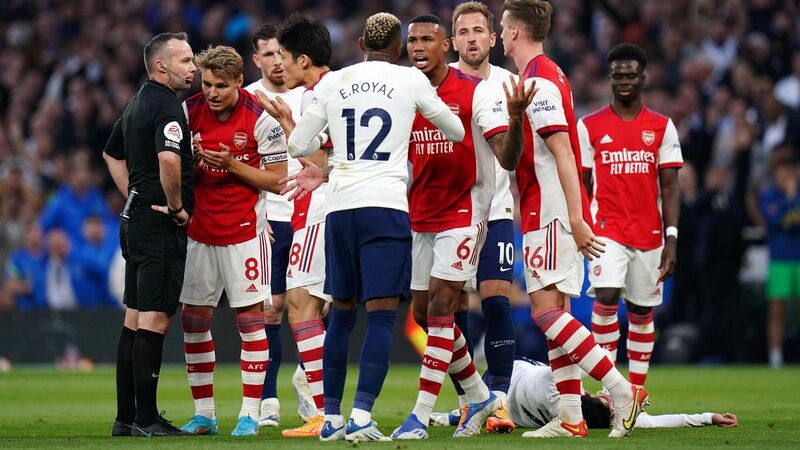Paul Rouse: Why would you ever become a referee?

All alone in the middle: Referee Paul Tierney shows red card Arsenal's Rob Holding for a foul on Tottenham Hotspur's Son Heung-min during the Premier League match at Tottenham Hotspur Stadium.
There is a belief that runs wild across the sporting world. Indeed, there is a fair chance that you believe it too: it is that referees (or some referees) make decisions that are founded in a bias against the team that you support.
There are all manner of explanations set out to explain such biases: personal spleen, geographical allegiances, city versus country, rich versus poor, black versus white, personal gain, or just pure badness.








